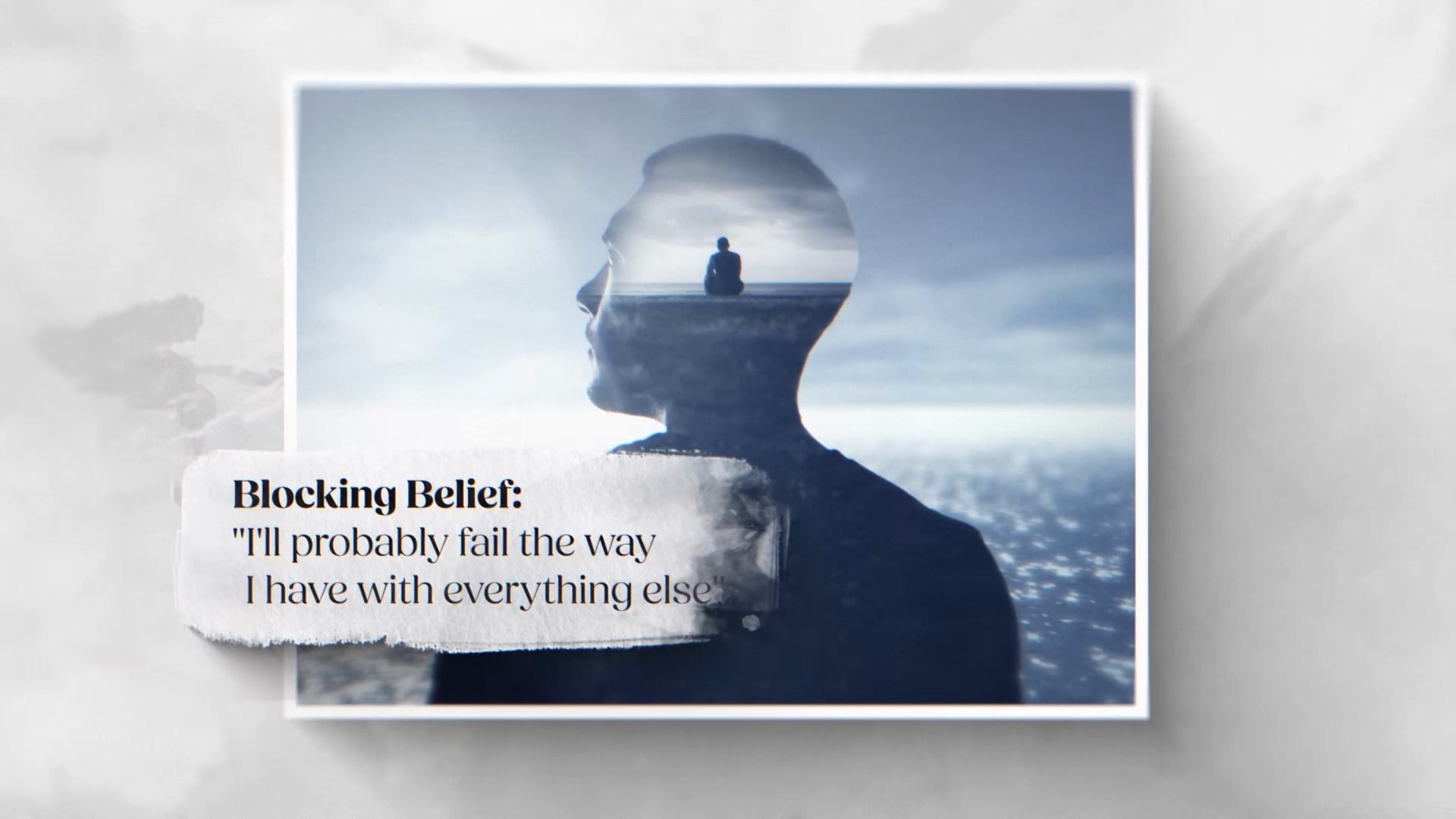
Blocking Beliefs
Another instance what you might find is a blocking belief. That is that the unsuccessful processing of the target issue is because a log is across the track. One of the combat veterans that I worked with in initial study up in Mendocino, this was where wounded vets very often go in order to isolate themselves. So he had gone into the woods, and he came out for therapy because he figured what the heck. He didn't expect anything to work anyway, but, you know, why not?
And he's coming in because he's having panic attacks constantly. Every time a plane is going overhead, he's ducking for cover, and this is basically what we're dealing with. So it seemed to me from the intake conversation that we're having that there's really a major control issue here. Okay? There's the notion of I'm not in control. He's trying very hard to be in control, and when he felt control slip, then the panic would set in.
So I'm suggesting that a positive cognition would be I can be comfortably in control and working backwards a negative cognition is I'm not in control. So he says, okay, sure, what the heck. He didn't expect anything to work anyway. And he doesn't wanna talk about anything that's going on in Vietnam that went on in Vietnam, but he is willing to deal with the memory of his wife having had him arrested. She got him drunk one night and got him to leave the the trailer after having called the police, and he got arrested. So this went along with I'm not in control, right? And we're starting off at an eight sublevel, and we process that down to a zero, and then I say, okay, how do the words I can be comfortably in control sound?
And he says, I'm not worthy to be comfortably in control. There's your blocking belief. So now we have a different target. What's involved with, I'm not worthy, lack of worth? This turns out to be a failed sexual encounter he had with somebody felt very strongly about. So, again, we're at an eight sub levels, and we process that down to a zero.
And before I can say anything after the zero, he says, I should probably talk to her about that, but I'll probably fail the way I have with everything else. Another blocking belief. Okay. What memory is involved in I'm a failure? And this turns out to be a memory from Vietnam. So he's a medic, and his unit is out of plasma. And so the CO sends him to go across to another unit in order to get the plasma.
So he goes running across the the, battlefield, and he picks up the plasma, starts running back and a rocket goes off overhead, and he gets knocked out. He wakes up. He has no idea how long he's been out, but both arms are dislocated. So he bends down and picks up the bag of plasma in his teeth and goes running back to the unit, drops it down, turn around, and the CO says, congratulations. You just killed two men because of how long he was gone. Okay. So we start processing this one. And now he processes this stuff with the CO and the authority issue and how it linked into his father stuff and all the rest of it.
And now we're down to a zero. And now we say, how do the words I can be comfortably in control sound? Now we're able to process that in. And the result afterwards in terms of the feedback regarding it was the panic attacks had gone already down. He said it took about three days to realize that when a, plane was going overhead, he was just saying, why don't they just get out of here? You see? The organic behaviors, the changes begin without the client necessarily aware of it because it's that organic.
The behaviors initially are being pushed because of the dysfunctional stored information. Now new behaviors are coming out from the positive the positive ways that it's currently stored. But that gives you an indication of when you've got that blocking belief, it's a log going across the track. And so if you're asking a client what's preventing for VOC going to be a seven, if they're saying, I'm not worthy, I'm not good enough, life is suffering, you know, those are indications of where you have to deal with the blocking belief.